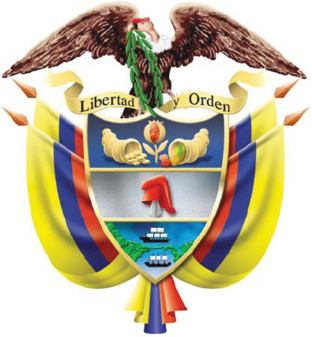consists of granting subsidies for the purchase of 200,000 housing units between 2020 and 2022, of which 100,000 will be designated as low-income housing and 100,000 will be for families of any income level, with certain pricing requirements.
The Government, through Decree 789 of 2020, announced a temporary exclusion of VAT for specific products and services including (i) chemical raw materials for medicines for the duration of the public health emergency; (ii) restaurants and cafeterias, until December 31, 2020; (iii) imported vehicles, until December 31, 2021; and (iv) hotel and tourism services, until December 31, 2020. The Government announced on February 25, 2021, that the declaration of a health emergency will be extended until at least May 31, 2021.
Through Law 2073 of December 31, 2020, Colombia approved an increase in the country’s debt ceiling by the amount of U.S. $14.0 billion. This increase will give the Government sufficient flexibility in the budget and a prudent financing margin to face potential economic shocks.
The Government, through FOME, has allocated to the Ministry of Health Ps. 6.1 trillion in 2020 and Ps. 2.4 trillion in 2021. The focus areas of these appropriations are (i) increasing hospital capacity, (ii) improving the quality and access of health insurance to the population and (iii) the implementation of the national COVID-19 vaccination plan.
As of April 10, 2021, the Government had purchased 66.5 million doses of COVID-19 vaccines for 37.8 million people, of which 20 million doses were purchased through the multilateral Covax agreement and 46.5 million doses were purchased through bilateral mechanisms. The bilateral agreements include 10 million doses from Pfizer Inc., 10 million doses from AstraZeneca, 10 million doses from Moderna, 9 million doses from Janssen, and 7.5 million doses from Sinovac.
On December 29, 2020, the Government issued Decree 1787 of 2020, which regulates the approval of emergency use of medicines used to diagnosis, treat, and prevent COVID-19.
On January 29, 2021, the Government issued Decree 109 of 2021, which establishes the vaccination plan against COVID-19, which program consists of vaccinating the population in two phases and five stages, prioritizing risk groups and thus progressively reaching 37.8 million vaccinated individuals. In the first phase, the plan will seek to reduce mortality and the incidence of serious cases from the virus, as well as protect health workers. The second phase aims to reduce the contagion to generate herd immunity. Vaccinations started on February 20, 2021. As of April 15, 2021, a total of 3.5 million doses of COVID-19 vaccines have been administered in Colombia.
On February 26, 2021, the Government issued Decree No. 206 of 2021, which imposes public health measures for the continued management of the COVID-19 pandemic, including requiring compliance with social distancing measures, directing municipalities with high COVID-19 infection rates to promulgate selective isolation measures and extending the prohibition on the operation of nightclubs.
On March 23, 2021, the Government issued an External Circular ordering local governments to adopt additional measures to contain the spread of COVID-19, which has been increasing in some cities. The measures include curfews, restrictions on the sale of liquor, restrictions on the opening of public places based on intensive care unit occupancy, and prohibitions on public events involving crowds.
On April 13, 2021, the Minister of Health and Social Protection, Fernando Ruiz Gómez, ordered the implementation of additional public health measures, such as curfews, quarantine on certain days of the week, and recommending that employers allow employees to work from home, in the cities of Medellín, Bogotá, Barranquilla and in the department of Atlántico, due to high COVID-19 contagion levels and intensive care unit occupancy in those cities.
S-17

